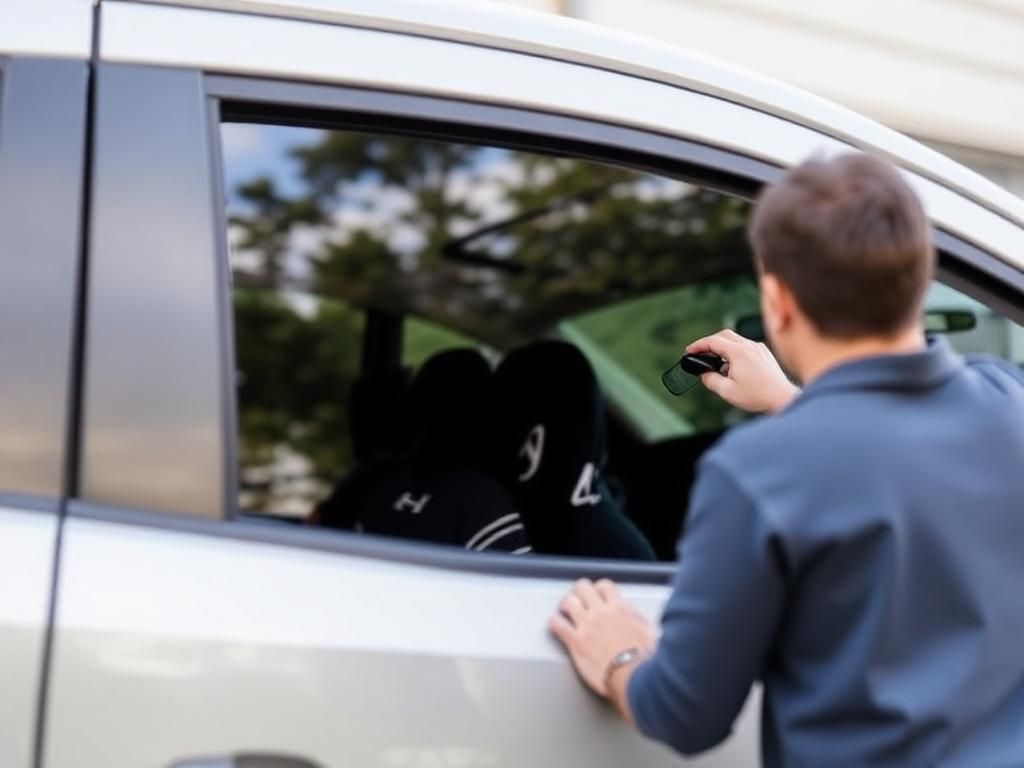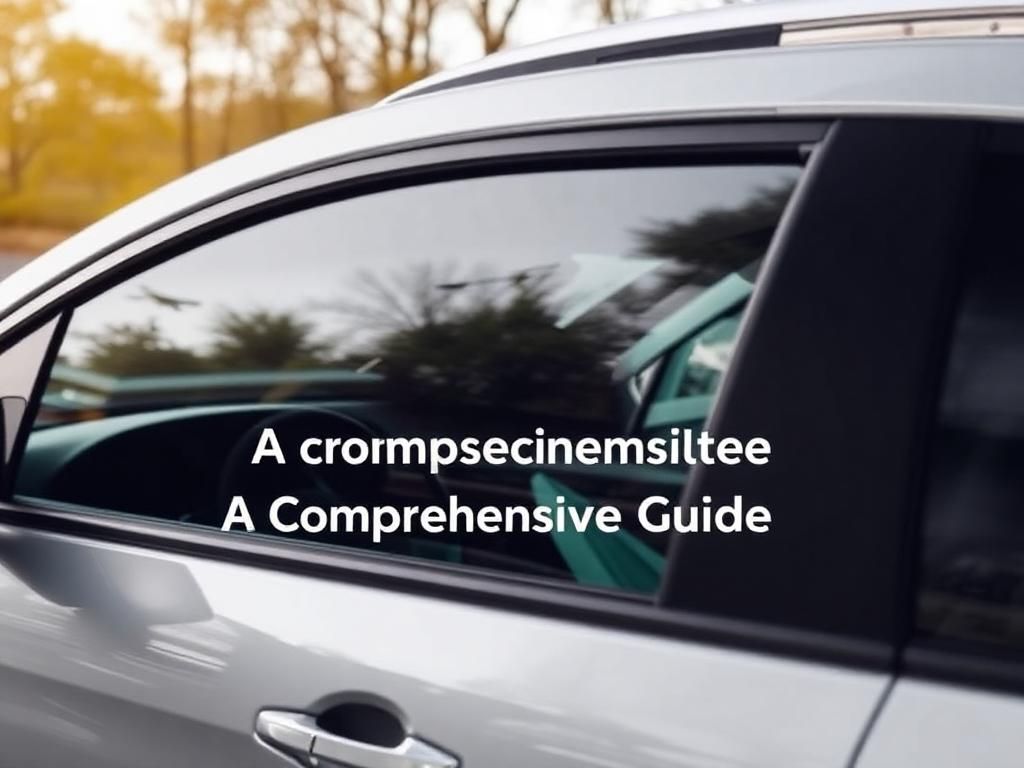Window tinting is an increasingly popular vehicle enhancement, often chosen for its aesthetic appeal and practical benefits. However, understanding the Massachusetts window tint law is essential for car owners wishing to legally tint their windows while ensuring safety and compliance with state regulations.
What is Window Tinting?
Definition of Window Tinting
Window tinting involves applying a thin film to the windows of vehicles, providing various benefits. These films come in several formats, including dyed, metalized, and ceramic, each with distinct advantages. Dyed films offer privacy and a darker look, while metalized films provide added durability and heat rejection. Ceramic films are highly effective in UV protection and heat reduction without blocking visible light.
Reasons for Window Tinting
- UV protection: Window tinting helps block harmful ultraviolet rays, contributing to skin safety and preserving interior materials.
- Heat reduction: Tinted windows keep the vehicle cooler, enhancing comfort during sunny days.
- Privacy and security: Tinted windows discourage theft and provide privacy for passengers.
- Aesthetic enhancement: An attractive tint can improve the overall look of a vehicle.
Overview of Massachusetts Window Tint Law
Legal Framework
The Massachusetts window tint law is primarily defined under Massachusetts General Laws Chapter 90, Section 9. The Massachusetts Registry of Motor Vehicles (RMV) oversees regulations concerning vehicle modifications, including window tinting.
Types of Vehicles Covered
The window tint regulations apply to various types of vehicles, including passenger vehicles and commercial vehicles. Certain exemptions exist, notably for those with valid medical conditions that require darker tint.
Tint Darkness Restrictions
Front Windshield
For the front windshield, tinting is allowed only above the manufacturer’s AS-1 line, typically around the top 5 inches. This is vital for maintaining visibility and safety.
Front Side Windows
The maximum allowable tint percentage for front side windows is 35%, which ensures adequate visibility for drivers and law enforcement officers.
Back Side Windows and Rear Window
Unlike the front windows, there are no specific regulations regarding darkness for back side windows and the rear window. However, it is vital to note that excessive darkness can still draw attention during inspections.

Reflectivity Restrictions
Front Windows
The reflectivity percentage for front windows is limited to a maximum of 35%. High levels of reflectivity can impair visibility, particularly at night.
Back Windows
Similar restrictions apply to the back windows, where reflectivity must not exceed 20% to maintain visibility and safety.
Additional Considerations
While reflectivity can provide privacy, it is essential to consider its impact on nighttime driving. Excessively reflective tints can pose hazards to the driver and other road users.
Medical Exceptions and Special Permits
Definition of Medical Exemptions
Massachusetts law recognizes valid medical conditions that necessitate darker tinting as medical exemptions. Conditions like certain skin disorders can qualify for these exemptions.
Application Process for Medical Exemption
To apply for a medical exemption, affected individuals must provide documentation from a licensed medical professional, specifying the need for a darker tint. The application can typically be submitted to the RMV for review.
Potential Costs and Guidelines
Obtaining a medical exemption may incur fees; thus, it’s wise to check the current regulations at the RMV. Permits may require renewal, so staying informed of timelines is crucial.
Installation and Compliance
Choosing a Licensed Installer
Proper installation is key to adhering to the Massachusetts window tint law. Selecting a licensed installer ensures that the window film will meet legal standards, avoiding potential fines down the line.

Compliance Checkpoints
When purchasing or installing window tint, compliance often involves an initial vehicle inspection. Drivers should be aware of laws governing frequent traffic stops by law enforcement, as these can lead to potential citations if tint laws are violated.
Consequences of Non-Compliance
Drivers found in violation of tint laws may face fines, and in severe instances, may be required to have the tint removed. It is paramount to maintain compliance to avoid such repercussions.
Frequently Asked Questions (FAQs)
Common Queries Related to Window Tinting
- What is the maximum tint percentage allowed? The maximum for front side windows is 35%, while there are no limits for back side windows.
- Are there any penalties for having illegal window tint? Yes, penalties can include fines and the necessity to remove tint.
- Can I receive a ticket for having a tint that was legal in another state? Yes, as vehicle regulations can differ greatly between states.
Recent Changes and Updates to Laws
Legislative Changes
Stay informed about any recent legislative changes or upcoming revisions that may affect the Massachusetts window tint law. This can significantly impact consumers and businesses alike, so checking the RMV website regularly is prudent.
Advocacy for Change
Various advocacy groups and individuals push for alterations to window tint regulations, arguing for more lenient rules. Public opinion on these matters is diverse, with surveys revealing a range of perspectives on vehicle safety and privacy.
Conclusion
In summary, knowing and understanding the Massachusetts window tint law is vital for vehicle owners wishing to enhance the aesthetics and safety of their cars. Staying informed about regulations ensures compliance and avoids penalties.
| Window Type | Maximum Tint (%) | Maximum Reflectivity (%) |
|---|---|---|
| Front Windshield | Above AS-1 line | N/A |
| Front Side Windows | 35% | 35% |
| Back Side Windows | No limit | 20% |
| Rear Window | No limit | 20% |
For further inquiries and assistance regarding the regulations, individuals can contact the Massachusetts RMV. Ensuring your vehicle meets the state’s window tint laws not only safeguards you from fines but also promotes road safety.
Call to Action
Have you had experiences with window tinting in Massachusetts? We invite you to share your thoughts and experiences. Also, consider subscribing for updates on vehicle laws and regulations to remain informed and compliant.